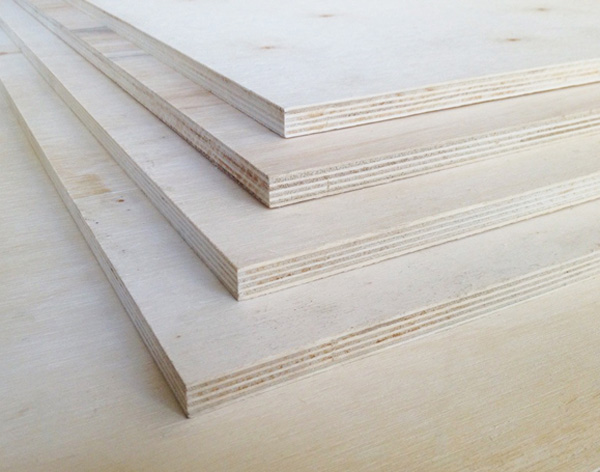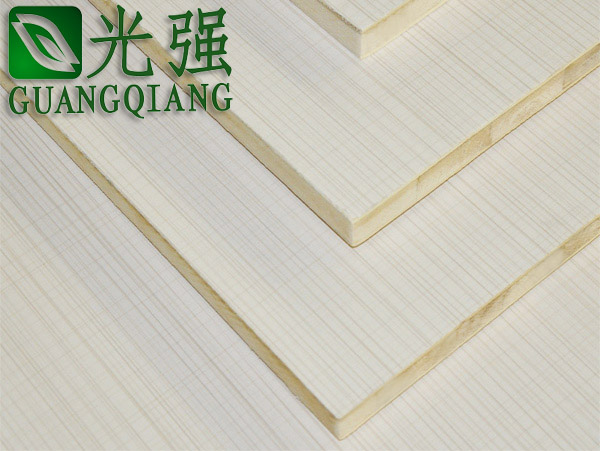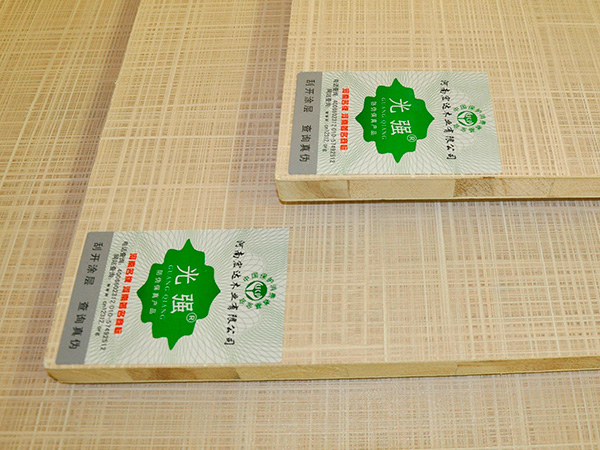Man-made board products are mainly adhesive is introduced
[ Time:2014-03-10 Click:3309 ]
In plywood products manufacturing process, the glue is essential factors of production, the quality of the glue is the top priority in the process of production, it is not only relation with the quality of our products and more relationship with physical health, but most people within the plywood products on the performance of the commonly used plastic etc also don't know, here are the henan hongda wood industry co., LTD. Web site under the small make up a simple introduction for everybody plywood products commonly used the knowledge of the glue, the following content is collected via baidu entry, please forgive me if there is an unknown.
1: urea-formaldehyde resin adhesive
Urea-formaldehyde resin adhesive with formaldehyde and urea as the main raw material, its reaction mechanism is very complicated. Traditionally urea-formaldehyde resin adhesive with weak base, weak acid, weak alkali process, through addition, condensation reaction.
Urea formaldehyde resin adhesive reaction mechanism
Early reaction of formaldehyde and urea under the condition of weak alkaline, addition reaction generated a methylol urea. A methylol urea under the condition of weak base, by condensation dehydration, forming linear or branched chain type urea-formaldehyde resin. Finally under the condition of weak base storage backup. New type of urea-formaldehyde resin adhesive is by changing the molar ratio of formaldehyde and urea to reduce the free formaldehyde adhesive, by controlling the PH value in the process of reaction and reaction temperature to adjust the structure of the resin, reasonable control of hydroxyl formaldehyde content in resin, reduce the formaldehyde in the resin ether bond, urea-formaldehyde resin and the preparation of qualified, and produce a qualified man-made plank.
2: melamine resin adhesive
Is made of melamine resin adhesives of melamine resin and its modifier, generally do not need to add curing agent, and by heating or at room temperature curing. Melamine formaldehyde resin composed of melamine and formaldehyde polycondensation, on different mole ratio of reactants to produce different products. In weakly alkaline or neutral medium, melamine and formaldehyde by the mole ratio of 1:2 ~ 3) are generated dihydroxy methyl melamine and three methylol melamine. Three early methylol melamine content in water, after drying concentrates as white solid, poorly soluble in water, dissolved without heated to 80 ℃. Its stability is poor, in high temperature or slightly alkaline medium easy generation of polymerization, should not be so far. In the same conditions if the number of moles formaldehyde for 6 ~ 12, generate a six methylol melamine and other polycondensate. Generated by the six methylol melamine resin (HMM) of high stability, can be kept for days in neutral aqueous solution.
Generate methylol melamine, dehydration generated in acidic medium dimers methylol melamine, and its further per mole dimers out 1 mol, formaldehyde; Methylol melamine dehydration reaction generated dimers, dimers continue to form the shape of the structure of the resin are crosslinked. Melamine glue is characterized by high chemical activity, good thermal stability, boiling water resistance, chemical resistance and good electrical insulation, heat resistance and water resistance is better than that of phenolic resin adhesive and urea-formaldehyde resin adhesive, but melamine after curing rubber brittleness is big, not cured rubber storage period is short, four it is rarely used alone, generally after the modification. Modification methods commonly used in the synthesis of melamine resin, add right amount of toluene sulfonamide, the resin can be used for plastic than trim surface impregnation, laminating, etc., can also be in melamine resin into appropriate to join in the process of acetic acid, and obtained modified melamine formaldehyde glue adhesion agent, its utility with the former.
3: phenolic resin adhesive
Phenolic resin is the phenol and aldehyde resin formed under the action of a catalyst. It is the earliest (in 1910, Germany Bakelite) synthetic polymer materials. In nearly a century of time, is used in many industries, it is still important synthetic polymer materials. Phenolic resin is widely used in the field of wood processing, one of the main analysing its consumption is second only to urea-formaldehyde resin. Especially in the production of water resistance, weatherability wood phenolic resin has the special significance.
Characteristics: the phenolic resin adhesive has good heat resistance, high bonding strength, good ageing resistance and excellent electrical insulation, and the characteristics of low price and easy to use, therefore has been widely used.
Advantages: large polarity, stick relay is strong; High rigidity, heat resistance; Good aging resistance; Water resistance, oil resistance, resistance to chemical media, mold; Itself is easy to be modified, but also to other adhesive for modification.
Disadvantages: darker, have certain brittleness, easy to crack, especially compared with urea-formaldehyde resin curing water soluble phenolic resin for a long time, high curing temperature, strict in moisture content of veneer.
1: urea-formaldehyde resin adhesive
Urea-formaldehyde resin adhesive with formaldehyde and urea as the main raw material, its reaction mechanism is very complicated. Traditionally urea-formaldehyde resin adhesive with weak base, weak acid, weak alkali process, through addition, condensation reaction.
Urea formaldehyde resin adhesive reaction mechanism
Early reaction of formaldehyde and urea under the condition of weak alkaline, addition reaction generated a methylol urea. A methylol urea under the condition of weak base, by condensation dehydration, forming linear or branched chain type urea-formaldehyde resin. Finally under the condition of weak base storage backup. New type of urea-formaldehyde resin adhesive is by changing the molar ratio of formaldehyde and urea to reduce the free formaldehyde adhesive, by controlling the PH value in the process of reaction and reaction temperature to adjust the structure of the resin, reasonable control of hydroxyl formaldehyde content in resin, reduce the formaldehyde in the resin ether bond, urea-formaldehyde resin and the preparation of qualified, and produce a qualified man-made plank.
2: melamine resin adhesive
Is made of melamine resin adhesives of melamine resin and its modifier, generally do not need to add curing agent, and by heating or at room temperature curing. Melamine formaldehyde resin composed of melamine and formaldehyde polycondensation, on different mole ratio of reactants to produce different products. In weakly alkaline or neutral medium, melamine and formaldehyde by the mole ratio of 1:2 ~ 3) are generated dihydroxy methyl melamine and three methylol melamine. Three early methylol melamine content in water, after drying concentrates as white solid, poorly soluble in water, dissolved without heated to 80 ℃. Its stability is poor, in high temperature or slightly alkaline medium easy generation of polymerization, should not be so far. In the same conditions if the number of moles formaldehyde for 6 ~ 12, generate a six methylol melamine and other polycondensate. Generated by the six methylol melamine resin (HMM) of high stability, can be kept for days in neutral aqueous solution.
Generate methylol melamine, dehydration generated in acidic medium dimers methylol melamine, and its further per mole dimers out 1 mol, formaldehyde; Methylol melamine dehydration reaction generated dimers, dimers continue to form the shape of the structure of the resin are crosslinked. Melamine glue is characterized by high chemical activity, good thermal stability, boiling water resistance, chemical resistance and good electrical insulation, heat resistance and water resistance is better than that of phenolic resin adhesive and urea-formaldehyde resin adhesive, but melamine after curing rubber brittleness is big, not cured rubber storage period is short, four it is rarely used alone, generally after the modification. Modification methods commonly used in the synthesis of melamine resin, add right amount of toluene sulfonamide, the resin can be used for plastic than trim surface impregnation, laminating, etc., can also be in melamine resin into appropriate to join in the process of acetic acid, and obtained modified melamine formaldehyde glue adhesion agent, its utility with the former.
3: phenolic resin adhesive
Phenolic resin is the phenol and aldehyde resin formed under the action of a catalyst. It is the earliest (in 1910, Germany Bakelite) synthetic polymer materials. In nearly a century of time, is used in many industries, it is still important synthetic polymer materials. Phenolic resin is widely used in the field of wood processing, one of the main analysing its consumption is second only to urea-formaldehyde resin. Especially in the production of water resistance, weatherability wood phenolic resin has the special significance.
Characteristics: the phenolic resin adhesive has good heat resistance, high bonding strength, good ageing resistance and excellent electrical insulation, and the characteristics of low price and easy to use, therefore has been widely used.
Advantages: large polarity, stick relay is strong; High rigidity, heat resistance; Good aging resistance; Water resistance, oil resistance, resistance to chemical media, mold; Itself is easy to be modified, but also to other adhesive for modification.
Disadvantages: darker, have certain brittleness, easy to crack, especially compared with urea-formaldehyde resin curing water soluble phenolic resin for a long time, high curing temperature, strict in moisture content of veneer.
Previous :The main types of the whole cabinet, wardrobe sheet and choose standard
Next:A whole wardrobe production process of the components and main process





